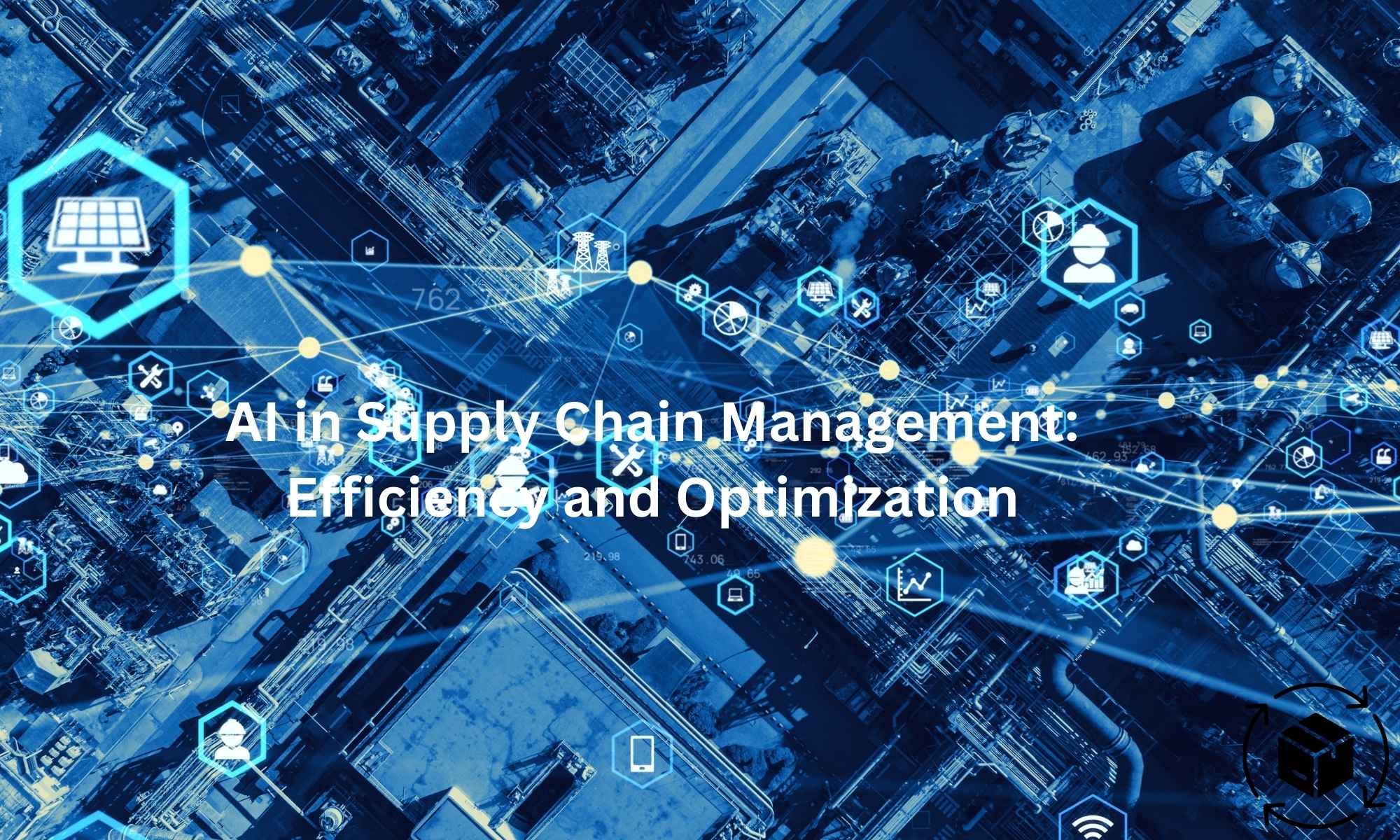Introduction – AI in Supply Chain Management
Artificial Intelligence (AI) transforms supply chain management by enhancing efficiency, optimizing workflows, and enabling businesses to adapt to dynamic market demands. From demand forecasting to logistics optimization, AI-powered solutions are helping organizations streamline operations, reduce costs, and improve sustainability. This article delves into the role of AI in supply chain management, as well as its applications, benefits, and challenges.
What is AI in Supply Chain Management?
AI in supply chain management refers to using machine learning, predictive analytics, and other AI technologies to automate processes, analyze data, and make informed decisions. Traditional supply chains often struggle with fragmented systems and limited visibility. AI addresses these issues by leveraging vast datasets to uncover patterns, predict trends, and optimize operations across the supply chain—from procurement to delivery.
Applications of AI in Supply Chain Management
AI has diverse applications across various stages of the supply chain:
1. Demand Forecasting
AI-powered predictive models analyze historical data, market trends, and external factors like weather or economic shifts to accurately forecast demand. This enables businesses to adjust inventory levels, optimize production schedules, and reduce stockouts or overstocking.
2. Inventory Management
AI ensures optimal inventory levels by analyzing data on sales history, lead times, and seasonality. It minimizes storage costs while preventing stockouts through real-time tracking and automated documentation.
3. Logistics Optimization
AI optimizes transportation routes by analyzing traffic reports, weather conditions, and fleet data. This reduces delivery times, fuel consumption, and transportation costs while improving overall logistics efficiency.
4. Manufacturing Process Enhancement
AI integrates with Material Resource Planning (MRP) systems to optimize production schedules based on demand forecasts and inventory levels. It reduces reliance on manual processes and improves product quality through precise coordination.
5. Supply Chain Visibility
AI enhances transparency by integrating IoT sensors with real-time data streams from warehouses, ports, and carriers. This visibility helps identify bottlenecks quickly and ensures smooth operations across global logistics networks.
6. Sustainability Practices
AI supports environmental goals by optimizing energy usage in manufacturing processes and reducing carbon emissions through efficient routing and waste minimization.
Benefits of AI in Supply Chain Management
The adoption of AI in supply chains offers multiple advantages:
1. Enhanced Decision-Making
AI provides actionable insights based on real-time data analysis. Predictive analytics help businesses plan for uncertainties, while scenario simulations allow for proactive decision-making.
2. Cost Reduction
By automating core processes like inventory management and logistics planning, AI reduces operational costs significantly. For instance, IBM reported saving $160 million through AI-driven supply chain optimization.
3. Operational Efficiency
AI streamlines workflows by automating repetitive tasks such as documentation processing or warehouse management. This improves productivity while minimizing human errors.
4. Improved Customer Satisfaction
Accurate demand forecasting ensures timely delivery of products while reducing stockouts or delays. Personalized recommendations further enhance customer experiences.
5. Sustainability
AI helps companies meet regulatory requirements for environmental impact by optimizing resource usage and reducing waste. Efficient routing minimizes greenhouse gas emissions from transportation activities.
Challenges in Implementing AI in Supply Chains
Despite its benefits, integrating AI into supply chains comes with challenges:
1. Data Quality Issues
AI relies heavily on accurate data inputs; fragmented or incomplete datasets can hinder its effectiveness.
2. High Implementation Costs
Deploying AI systems requires significant investment in infrastructure development and training personnel.
3. Resistance to Change
Organizations may face resistance from employees accustomed to traditional methods of supply chain management.
4. Ethical Concerns
Ensuring compliance with privacy regulations like GDPR while managing sensitive customer or supplier data is critical.
Real-World Examples of AI in Supply Chains
Several companies have successfully implemented AI-powered solutions:
– American Tire Distributors (ATD): Used probabilistic forecasting engines to improve demand responsiveness across suppliers and retailers.
– Church Brothers Farms: Leveraged demand sensing capabilities to reduce product wastage while enhancing order fulfillment accuracy.
– IBM: Achieved a 100% order fulfillment rate during disruptions by using cognitive supply chain technology for rapid decision-making.
Best Practices for Leveraging AI in Supply Chain Management
To maximize the benefits of AI:
1. Invest in High-Quality Data Infrastructure: Integrate with IoT devices and ERP systems to ensure data accuracy.
2. Adopt Scalable Solutions: Choose AI tools that can grow with your business needs.
3. Train Employees: Provide training on using AI tools effectively.
4. Monitor Performance Metrics: Regularly evaluate AI’s impact on key performance indicators like cost savings or delivery times.
5. Focus on Sustainability: Use AI to align operations with environmental goals.
Conclusion- AI in Supply Chain Management
AI revolutionizes supply chain management by delivering efficiency, cost savings, and sustainability improvements across industries. Its applications are vast and impactful, from forecasting demand to optimizing logistics networks.
As businesses navigate complex global markets, adopting AI-powered solutions is essential for staying competitive while meeting customer expectations.

